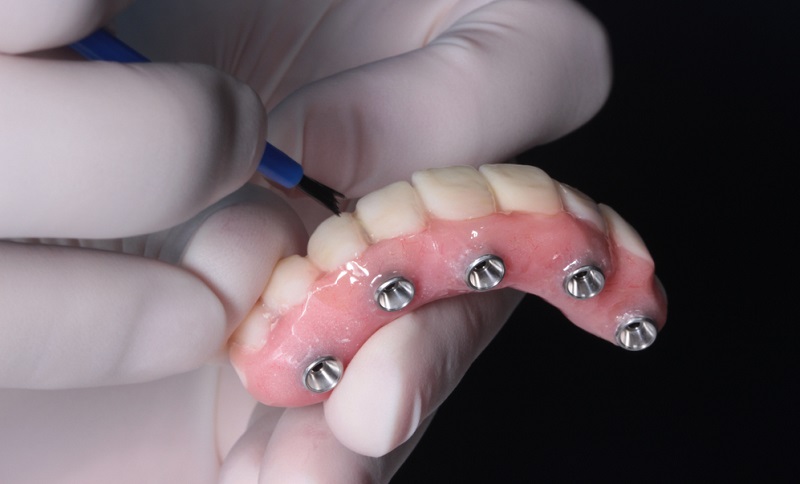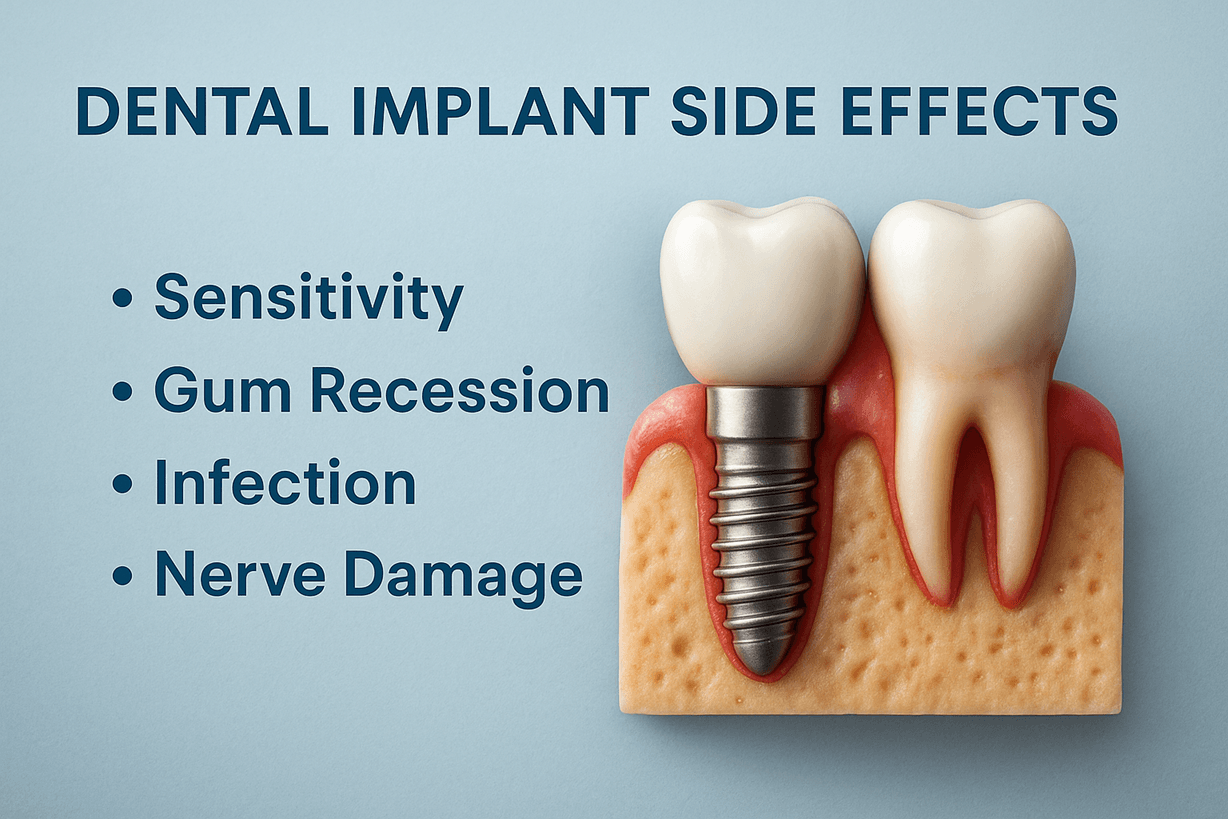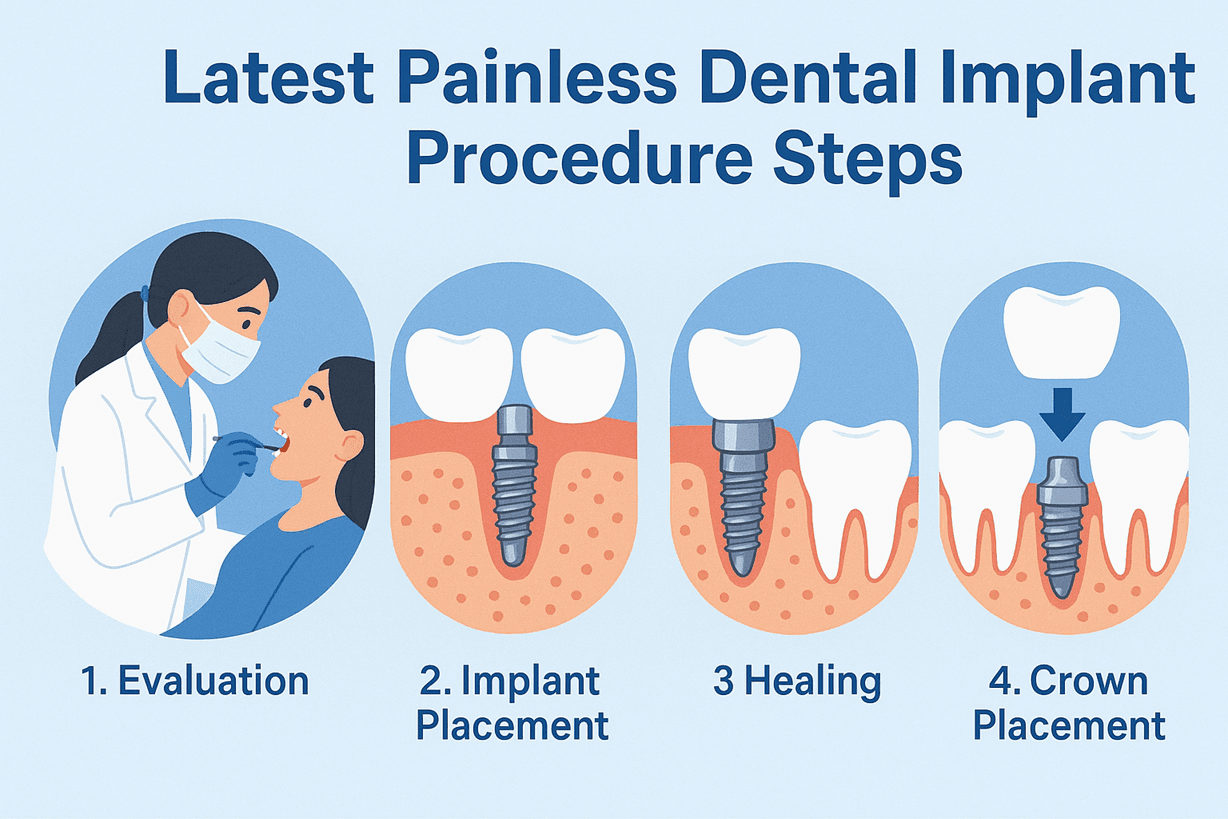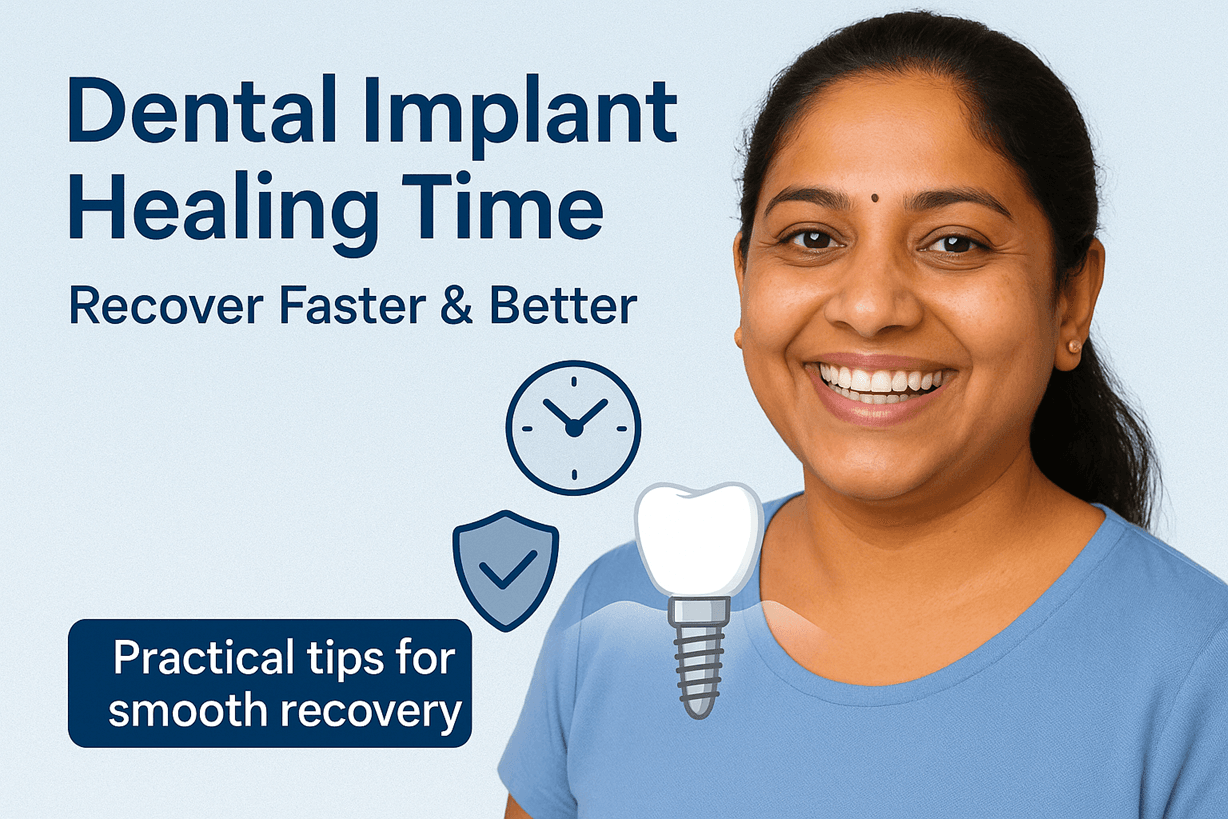Contents
- What are All on 4 Dental Implants?
- All on 4 Dental Implants Surgery Process
- What is the Recovery Time for ‘All on 4 Dental Implants’?
- Tips for Recovery After All on 4 Dental Implants Surgery
- Pros and Cons of All-on-4 Dental Implants
- Cost of All-on-4 Dental Implants
- Conclusion
What are All on 4 Dental Implants?

The All-on-4 dental implant treatment is a new, innovative way to replace missing teeth. It is a minimally invasive procedure that uses four implants to support a full set of dentures.
The all-on-4 treatment is an alternative to traditional dental implants and can provide you with a new smile in as little as one day.
The all-on-4 treatment is ideal for people who have lost all of their teeth or who have failing teeth. The treatment can give you a natural-looking smile and restore your confidence.
The All on 4 treatment is also less expensive than traditional dental implants and can be completed in one day.
If you are considering the all-on-4 implant treatment, please contact our office to schedule a free consultation with Dezy today!
All on 4 Dental Implants Surgery Process
If you're considering All on 4 dental implant surgery, you're probably wondering what the process is like.
Here's a detailed look at what to expect from start to finish.
- First, your implant dentist will take X-rays and 3D scans of your mouth to determine if you're a good candidate for the procedure. They'll work with you to develop a treatment plan if you are.
- Next, it's time for surgery. This usually occurs in an outpatient setting, so you can go home the same day.
- During surgery, your implant dentist will place four titanium posts into your jawbone. These posts will serve as the foundation for your new teeth.
- After surgery, you must wait for your jawbone to heal around the implants. This can take several months.
- Once your jawbone has healed, you'll return to the dentist to have your new teeth (often called dental crowns) placed on top of the implants.
And that's it! You'll have a new smile that looks and functions like natural teeth.
What is the Recovery Time for ‘All on 4 Dental Implants’?
Following the placement of your All on 4 dental implants, you may have some swelling and bruising, which is typical and will settle on its own within a week or two.
- For 15 minutes at a time, apply an ice pack wrapped in a towel on either side of your face. This can assist to minimize swelling and numb the affected area.
- If you are in pain, you can use over-the-counter pain relievers. However, aspirin should be avoided because it increases the risk of bleeding.
- You should also refrain from drinking alcohol for the first few days following the placement of your All-on-4 dental implants.
- This is because alcohol can thin your blood and raise your risk of bleeding.
- If your bridge isn't being loaded right away, your dentist will have sutured the implant sites closed with dissolvable stitches.
These will gradually disintegrate over a week or two; you will not require further consultation to get them removed.
Tips for Recovery After All on 4 Dental Implants Surgery
If you're considering All on 4 dental implants, you're probably wondering what the recovery process will be like.
Here are a few tips to help you recover quickly and comfortably after your surgery:
1. Get plenty of rest
Getting plenty of rest is critical during the first week after getting implants since the body repairs itself best when it is rested.
Consider taking a week off work to give yourself extra time to recover and relax. Exercise and other physical activity should be avoided for the first week following implant placement.
2. To alleviate inflammation, apply ice or heat packs.
Inflammation is a side effect of implant placement that can be treated with cold or hot compresses. For 15 minutes at a time, apply the compress to the sides of the face.
Reducing inflammation hastens recovery, and the majority of the inflammation should be gone by 72 hours.
3. Take your medications as prescribed
Bite pressures from hard or chewy foods place significant strain on implants and the prosthetic teeth they support. Such forces may cause a recently implanted implant to shift.
Patients are recommended to limit their diet to liquids for the first three weeks following implant placement. They can then begin to reintroduce soft foods back into their diet. Once osseointegration is complete, patients will be able to resume their regular diet.
4. Practice good oral hygiene habits
After having implants implanted, it is critical to maintain good oral hygiene. It lowers the possibility of infection as a result of the surgery.
Interdental brushes made expressly for cleaning implants, for example, make it easier to keep these mouth prostheses clean.
The places where the implants are placed will be uncomfortable for a few days after they are installed. During this time, patients should avoid touching or rubbing these areas.
Brushing teeth should be done gently, and any mouthwash suggested by the dentist should be used exactly as directed. Brushing at least twice a day and flossing once a day are essential for good oral hygiene.
5. Follow up with your dentist as scheduled
After your surgery, it's important to follow up with your dentist for checkups and cleaning appointments as recommended
Pros and Cons of All-on-4 Dental Implants
Here are the Pros of All-On-Four Dental Implants:
- A good success rate:
Many studies have revealed that after ten years, the patient success rate is around 94 per cent.
- Speedy Recovery:
Surgery, implant implantation, and bone grafting (if necessary) are all completed in a single session.
- Hassle-Free and Quick Healing Process:
After three days, patients can usually resume normal activities.
- Limited Dietary Restrictions:
Once you've recovered from surgery, just a few foods will be off-limits.
- Effortless Care Routine:
Brushing twice a day and flossing once a day will keep your natural teeth, prosthetic teeth, and gums healthy.
- Better Confidence:
All-on-4s provide you with a beautiful smile without the self-consciousness that comes with wearing dentures.
- Better Eating and Speaking:
Since All-on-4s do not disguise your sensitive palate, speaking is more natural, and eating is more enjoyable.
Here are the Cons of All-On-Four Dental Implants:
Possible Speech Difficulties
With the temporary prosthesis, some patients have difficulties pronouncing specific words or letters.
Expensive
It’s no joke, but it can be a little expensive. It can range anywhere from a few thousand to 2,50,000 INR for one arch. So it is always better to have a detailed discussion with your dentist and weigh how important it is to have surgery as such.
Sensitive Gums
All surgical procedures do come with a sense of discomfort for some time. In the case of All-on-four Dental Implants, you will have gum tenderness for a bit and it should pass in a few days after your surgery.
Complications of Inadequate Hygiene
Post Dental Implant care is extremely important. Your implant, although safely and securely placed, can have a potential chance to collect some kind of food particles or even develop plaque. Inadequate cleanliness might lead to extra health issues in the vicinity of the implants.
Colour Mismatch in Gums
This is an uncommon occurrence, and most patients leave surgery satisfied with the appearance of their new grins.
The Risks of a Failing Implant
Through various studies and research, there is a mere 5% of patients witness a failure of dental implants.
Cost of All-on-4 Dental Implants
The cost of All-on-4 dental implants can vary depending on several factors, such as the number of implants needed, the type of implant chosen, the complexity of the surgery, and the location of the dentist.
- However, on average, Four dental implants can cost between $15,000 and $30,000. But in India, all ‘All-On-4 dental implants’ can be a tad bit pricey.
- It is quite a common question and one that we get asked a lot. The answer, sadly, is not a straightforward one.
- The cost of All-On-4 dental implants can vary quite significantly from person to person, and it all depends on several different factors.
- The first thing that will affect the cost of your All-On-4 dental implants is the type of implant you choose. There are different types of implants available on the market, and each one has its own price tag.
- The second factor that will affect the cost is the number of implants you need. Obviously, if you need more implants, the overall cost will be higher.
- Lastly, the location of your implant surgery. Implants are usually more expensive in big cities than in smaller towns or rural areas.
And finally, the last thing that can impact the cost of your All-On-4 dental implants is your insurance coverage.
Conclusion
All all-on-4 dental implants are a convenient, cost-effective solution to missing teeth.
The treatment is relatively quick and painless with results that look natural while being permanent solutions to traditional dentures.
If you’re considering replacing missing teeth or seeking permanent solutions for existing dentures, the all-on-4 system might be an option worth exploring for its long-lasting benefits and low-maintenance aftercare.



